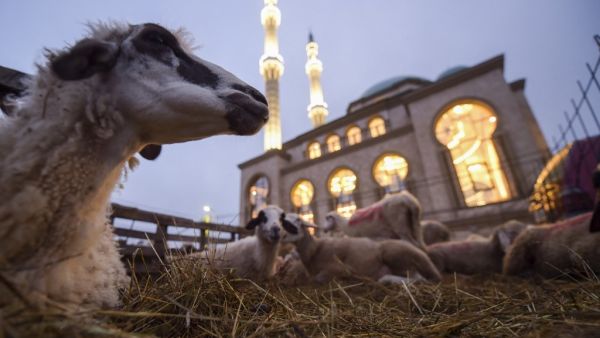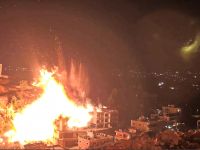Known as Eid al-Adha, Eid ul Adha, Id-ul-Azha, Id-ul-Zuha, Hari Raya Haji or Bakr-id, the 'Feast of Sacrifice is the most important feast of the Muslim calendar.
This festival is celebrated throughout the Muslim world as a commemoration of Prophet Abraham's willingness to sacrifice everything for God.
Happy Eid from AlBawaba Team!
— Al Bawaba News (@AlBawabaEnglish) July 19, 2021
كل عام وأنتم بخير pic.twitter.com/dSDjikiJ0i
Eid al-Adha falls on the 10th day the twelfth and final month in the Islamic calendar. As the exact day is based on lunar sightings, the date may vary. Depending on the country, the celebrations of Eid-ul-Adha can last anywhere between two and four days.
The holiday also marks the end of the annual Hajj pilgrimage. It is different from another major Muslim holiday, Eid al-Fitr, which was recently celebrated in May to mark the end of the holy month of Ramadan.
A very #HappyEid to everyone celebrating!
— The Rotherham NHS FT (@RotherhamNHS_FT) July 20, 2021
We’d like to thank Rotherham NHS staff for their fantastic work, as well as the wider community, who have made huge sacrifices to support us and respond to the pandemic. #EidMubarak pic.twitter.com/EqWKAuPqfV
Under usual circumstances, Muslims would visit mosques and have large community gatherings. Because of the coronavirus pandemic, celebrations are looking a bit different this year.
During the festival, families that can afford to sacrifice a ritually acceptable animal (sheep, goat, camel, or cow) do so and then divide the flesh equally among themselves, the poor, and friends and neighbors. Eid al-Adha is also a time for visiting with friends and family and for exchanging gifts.







